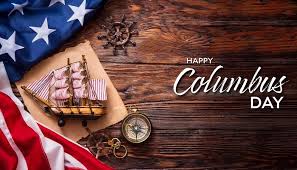Columbus Day 2025: Understanding Its Significance and Observations

The Importance of Columbus Day
Columbus Day, celebrated on the second Monday of October, commemorates Christopher Columbus’s arrival in the Americas in 1492. This holiday has a complex history and remains relevant as it reflects ongoing discussions about colonialism, Indigenous rights, and multiculturalism in North America. As we approach Columbus Day 2025, many are evaluating its significance and the narratives surrounding it.
Current Observations and Controversy
In recent years, Columbus Day has faced significant scrutiny. Various cities and states have rebranded the holiday to Indigenous Peoples’ Day or Native American Day, aiming to honor the contributions and cultures of Indigenous peoples while acknowledging the darker side of colonization. For example, in 2021, numerous US states joined this movement, with a rising trend expected to continue into 2025.
Historical Context
Columbus Day became an official federal holiday in the United States in 1937. It originally served to recognize Italian-American heritage but has since evolved into a broader discussion about the impact of colonization. The acknowledgement of Indigenous Peoples Day promotes a more inclusive narrative that respects diverse histories and perspectives.
Predictions for 2025
As Columbus Day 2025 approaches, numerous events and activities are likely to be organized reflecting these changing sentiments. The debate over the holiday’s observance may lead to local governments adopting alternative holidays to promote Indigenous culture. Additionally, educational initiatives aimed at raising awareness of Indigenous histories and rights are forecasted to gain more traction.
Conclusion
Columbus Day, while rooted in history, continues to be a topic of significant debate and change. As more communities opt for alternative observances in Columbus Day 2025, individuals are encouraged to engage in conversations that honor diversity and respect Indigenous perspectives. The future of this holiday may fundamentally reshape how history is taught and understood in North America, opening pathways for reconciliation and understanding among cultures.









